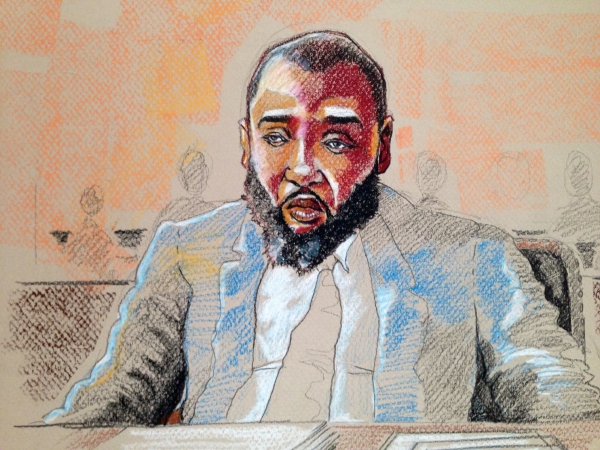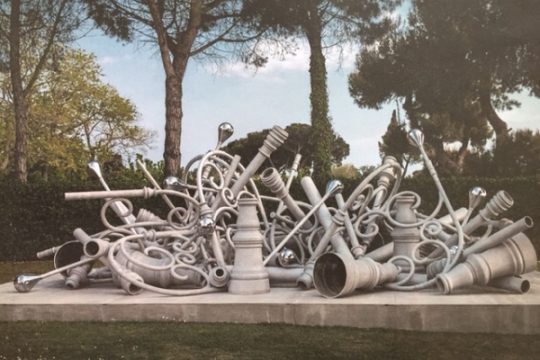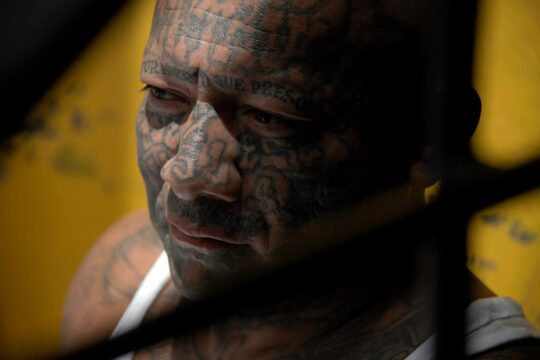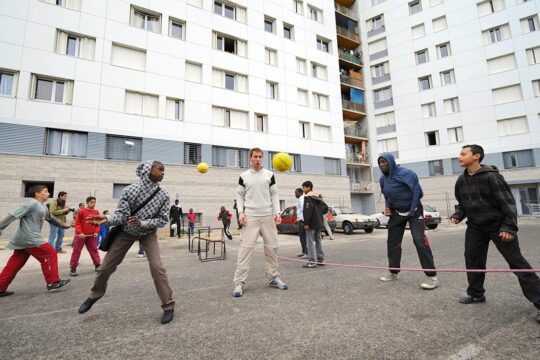The trial of former Congolese militia leader Maro Ntumwa (dubbed the “Moroccan”) by a military tribunal in South Kivu, eastern DRC, opened on April 13 and continued this week.
The accused is charged with “rape, sexual slavery, looting, attacks against a civilian population and on religious buildings” committed between 2005 and 2007, reports our correspondent Claude Segenya. “At the time, he was the right-hand man of Bedi Mobuli Engengela, dubbed `Colonel 106`, a former leader of the Mai-Mai militia who has already been convicted by a military court,” he writes.
For Sylvestre Bisimwa, spokesman for the victims’ lawyers’ collective, this trial is “a strong signal addressed to perpetrators and potential perpetrators of crimes”.
Sentence in the US
Another former African warlord was also in the news this week: Liberian Mohammed Jabateh, who immigrated to the United States after hiding his past in ULIMO (United Liberation Movement of Liberia for Democracy) between 1992 and 1995.
Nicknamed "Jungle Jabbah", Mohammed Jabateh, 51, was sentenced on Thursday to 30 years in jail by a Philadelphia court, in an unprecedented trial linked to the 1989-2003 civil war in Liberia. He was found guilty of lying to US authorities during his request for asylum in 1998, and then his request for permanent residence. Although he was not charged directly with crimes committed in the West African state of Liberia, the American prosecutor brought witnesses to the atrocities of which he was accused as proof that he had lied when entering the US.
“Victors’ justice”
In Côte d’Ivoire, families of political prisoners are denouncing what they see as victors’ justice, seven years after the fall and arrest of ex-president Laurent Gbagbo, who is currently on trial before the International Criminal Court (ICC) in The Hague. According to the Association of Wives and Families of Political Prisoners in Côte d’Ivoire (AFFDO), there are 300 political prisoners languishing in the country’s jails, writes our West Africa correspondent Maxime Domegni. The association’s president Désirée Douati, who is herself an ex-prisoner, says these prisoners are sick and do not get any medical care. “This is victor’s justice,” she says. “When President Laurent Gbagbo was arrested, the people who took power were supposed to bring reconciliation. But instead they decided to torture us.”
These accusations are rejected by Abidjan Appeals Court Prosecutor Lebry Marie-Léonard. “I know of no victors’ justice,” he says. “Justice has nothing to do with revenge.”
Memorial to the Armenian genocide
Finally to Geneva, where JusticeInfo reported on the brand new memorial to the Armenian genocide. As Frédéric Burnand writes, this work by artist Melik Ohanian “pays homage to the Armenians massacred over a century ago in Turkey and to the many Swiss who have mobilized in their support ever since the first massacres”. Composed of nine lamp posts with a teardrop for a bulb, this memorial “expresses primarily the destiny of all the Armenians targeted, their descendants and all those who helped them, especially in Geneva”, he writes.







